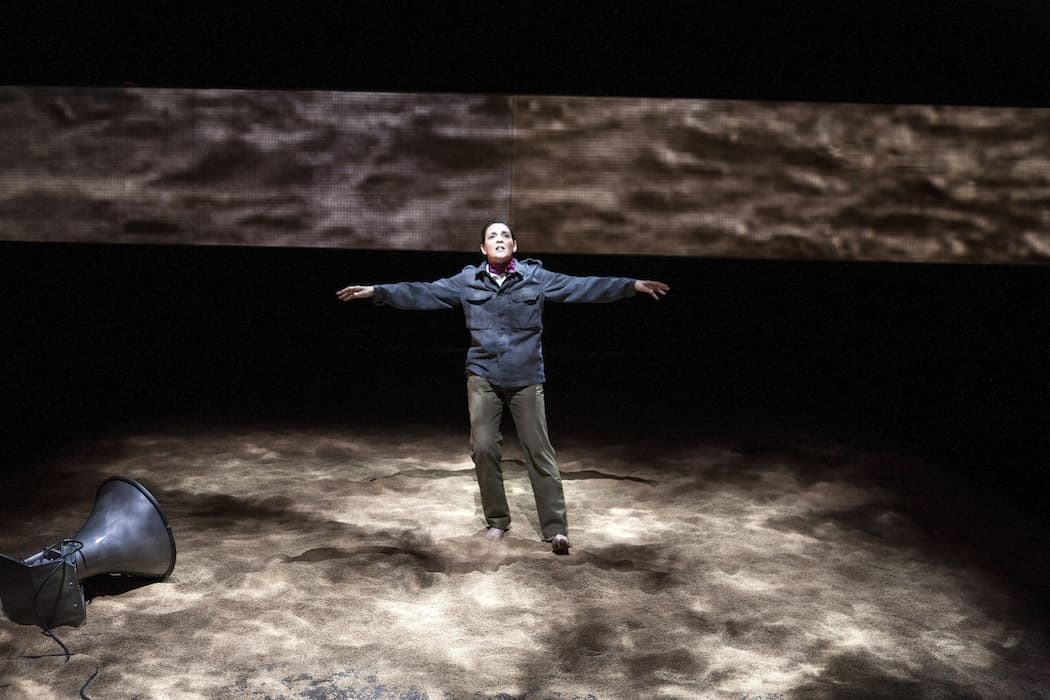Advertisement
Marissa Chibas Executes A Quiet Cuban Revolution At ArtsEmerson

Art often tells us, in a way that journalism can’t, about the way we live now, to quote Trollope. And it tells us, also in a way that journalism can’t, about the way that other people live their lives.
So hats off to ArtsEmerson for its trilogy of Latino plays from Chile, Cuba and Mexico. “Daughter of a Cuban Revolutionary,” which opened Wednesday and plays through Sunday at the Paramount Center black box, is the middle part of the trilogy and is almost the polar opposite of “Historia de Amor,” last week’s Chilean multimedia exploration of obsession and rape.
But in Marissa Chibas’ artful hands the production from CalArts Center for New Performance and Duende Calarts, is no less complex a tale, and certainly a more transcendent one. Chibas is the author, performer and title character of the play and while she probably wouldn’t describe herself this way, she’s also its hero. Not that she put her life on the line the way her father (Raúl) and uncle (Eddy) did against U.S.-supported fascist governments in Cuba. She has lived her life in the relative comfort of America.
What makes her story heroic is her very quiet and subtle way of embracing every aspect of her history — well, maybe not the fascist part — to arrive at the point where she can extract the value of the warmth and zest for life of traditional Cuban culture; the blood, sweat and tears of the Cuban revolution, including the sacrifices of her father and uncle; her mother’s sexiness (on her deathbed she told Chibas to put on lipstick); and, ultimately, the desire to forge an identity out of all these disparate parts.
Along the way she angers Cuban conservatives because of her father’s revolutionary past (her father worked with Fidel Castro before deciding he had betrayed the revolution) and she angers her father by deciding to go to Cuba to visit the family still there and to revel in her roots.

She portrays father, mother and uncle at various times, but what’s most moving is her own story delivered without any jerking of tears. The matter-of-factness lets the torture and denial of human rights speak for themselves. Similarly, a simple sentence about watching her parents dancing speaks volumes: “I witness something I rarely see in their faces — joy.”
Unlike the ideologues who rail against the thaw in U.S.-Cuba relations, Chibas accepts ambiguity. Art accepts the ambiguity that politics can’t. And this “daughter of Celia Cruz and Duke Ellington” dances to many different rhythms. It’s not the kind of one-woman show by a Laurie Anderson or Anna Deavere Smith that leaves you awed by the performance.
But in her quiet way, Marissa Chibas has her own unique theatrical voice, as in poetically recalling her father’s dying night “surrounded by his four children, serenaded by his life.” It was a life well-lived and so, on an artistic level, is his daughter’s.
Ed Siegel is editor and critic at large of The ARTery

